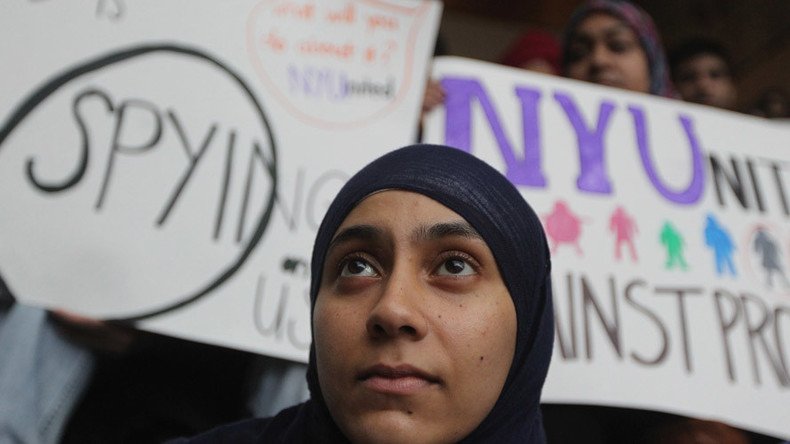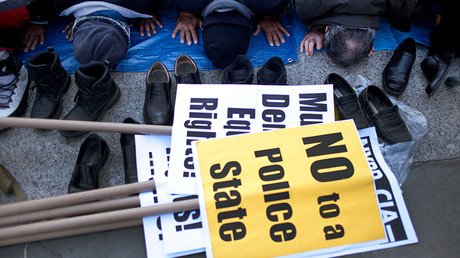NY judge rejects settlement in illegal police spying on Muslims

A New York federal judge has rejected a settlement in cases of NYPD spying and “religious profiling” of Muslims. The judge also urged stronger protection of Muslims’ rights, accusing the police department of “systematic” court order violations.
The decision by Manhattan federal court Judge Charles Haight stems from January’s settlement between New York City and plaintiffs in two lawsuits, filed against local police over groundless surveillance of Muslims.
At the time, New York City Mayor Bill De Blasio agreed to appoint a civilian monitor from outside the agency to monitor the NYPD’s counter-terrorism units. It was pending approval in each of the cases by a judge until October 28, but ended up never being approved.
Civilian to monitor NYPD spying in settlement over covert surveillance of Muslimshttps://t.co/yflAshsAlzpic.twitter.com/qpT08jtVCb
— RT America (@RT_America) January 8, 2016
“The proposed role and powers of the civilian representative do not furnish sufficient protection from potential violations of the constitutional rights of those law-abiding Muslims and believers in Islam who live, move and have their being in this city,” Judge Haight wrote in his ruling. He also stressed that a representative’s role should be strengthened, because the NYPD had a “systemic” tendency of “disregarding” court orders.
In addition, a person for the role of the civilian representative should not be appointed by the mayor, but rather through the court, the ruling stated.
The judge cited an NYPD inspector general’s 36-page report released in August, in which it was concluded that officers violated the so-called Handschu guidelines that regulate the NYPD’s process of conducting investigations.
“Those failures suggest a systemic inclination on the part of the Intelligence Bureau to disregard the Guidelines’ mandates,” the judge wrote.
Regarding the changes into the January settlement, Haight asked the city to require the civilian representative to report to the court “at any time communicate to the court comments or concerns arising out of his or her functioning in that position.”
In the settlement that Haight rejected, a lawyer placed inside the police department would have to review intelligence files and report to the police commissioner.
He has additionally ruled that a new provision should be added, requiring the mayor of New York, who can appoint the civilian representative for a five-year period, to seek court approval before abolishing this position.
“I suggest that alteration because one cannot foretell what will happen over time in this sensitive and volatile part of life and it is questionable whether it is fair or reasonable to give the mayor this unfettered veto power,” Haight wrote.
Haight, who has now essentially cracked down on the New York police, was also the judge who ruled in favor of expanding the NYPD’s powers, allowing it to act with less oversight post-9/11.
The two lawsuits were filed in Manhattan and Brooklyn federal courts in 2013, stemming from 2011 revelations that the NYPD, with help from the CIA, was using undercover informants to surveil Muslims throughout New York and New Jersey in mosques, religious bookstores, halal delis and other places.
In his ruling, Haight wrote that it was a “historic fact” that different groups “came to be targeted by police surveillance activity” as decades passed.













